-
Thursday, 25 January 2024 – 7pm / Second session: Saturday, 10 February 2024 – 7pm Sabatini Building, Auditorium
Session 1
TicketsHarun Farocki. Aufschub [Respite]
Germany and South Korea, 2007, b/w, silent with Spanish subtitles, DA, 40’Lav Diaz. Walang alaala ang mga paru-paro [Butterflies Have No Memories]
Philippines and South Korea, 2009, b/w, original version in Tagalog with Spanish subtitles, DA, 40’– With a presentation by Sung Moon (programmer of the Jeonju International Film Festival) in the first session
The memory of violence extends across these two films by Harun Farocki and Lav Diaz. Aufschub meticulously examines the footage shot by Rudolf Breslauer at the Westerbork refugee camp in the Netherlands, a place of transit set up for the Jewish and Romani people who were deported to death camps in the east. Farocki’s film-making always keeps a distanced and critical view in relation to the image and the symbolic violence it is capable of inflicting, with the German director analysing in this film the images retrieved from Westerbork to present them to the viewer with renewed force. The film Walang alaala ang mga paru-paro, meanwhile, zooms in on a community on the remote island of Marinduque, in the Philippines, which remains stranded in time following the closure of a mine a few years previously, when the Canadian multi-national company that operated it left. A group of unemployed islanders remember bygone days of economic prosperity, ignoring the natural disaster the company was causing in the territory. The situation shifts with the visit of one of the female descendants of the former owners of the mine, who, arriving from Canada, sparks violence on the island. As with the rest of Philippine film-maker Lav Diaz’s filmography, this work investigates the social, economic and political circumstances in the Philippines, dissecting the problems facing a community ensnared in post-colonial dilemmas.
![Harun Farocki. Aufschub [Respite], film, 2007 Harun Farocki. Aufschub [Respite], film, 2007](https://recursos.museoreinasofia.es/legacy_programs/s_harun_farocki.jpg)
-
Friday, 26 January 2024 – 7pm / Second session: Thursday, 15 February 2024 – 7pm Sabatini Building, Auditorium
Session 2
TicketsGakuryu Ishii. Kyoshin (Mirrored Mind)
Japan and South Korea, 2004, colour, original version in Japanese with Spanish subtitles, DA, 40’Apichatpong Weerasethakul. Worldly Desires
Thailand and South Korea, 2005, colour, original version in Thai with Spanish subtitles, DA, 40’The two films in this session work as two opposing mirrors showing the contrast between city and jungle. In Kyoshin, an actress going through a profound identity crisis is progressively captivated by images of a tropical paradise shown on the screens pervading the city of Tokyo. The malaise of contemporary life in large cities, so-called “civilisation sickness”, is a recurring theme in the films of Japanese director Gakuryu Ishii, who, in this instance, explores forms of resistance in these modern environments: for the protagonist of the film, the screens offer a utopian space, a form of escapism towards another place and time. Conversely, in Worldly Desires Thai film-maker Apichatpong Weerasethakul films two moments in the depths of the jungle: during the day, two lovers flee from their families in search of a spiritual tree, while at night a group of women stage a romantic song about the search for happiness. Throughout the work, the jungle represents a liminal space, a world of hidden dreams and desires inhabited by spirits and mysterious creatures. As the director explains: “The jungle reveals true emotions as it becomes a kind of landscape of the imagination. Sometimes it is a character. Sometimes also a stage”.
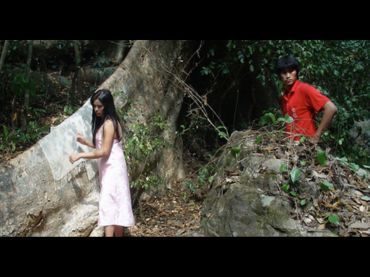
-
Saturday, 27 January 2024 – 7pm / Second session: Friday, 16 February 2024 – 7pm Sabatini Building, Auditorium
Session 3
TicketsMatías Piñeiro. Rosalinda (Rosalind)
Argentina and South Korea, 2010, colour, original version in Spanish, DA, 43’Eugène Green. Correspondances (Correspondence)
France and South Korea, 2007, colour, original version in French with Spanish subtitles, DA, 39’John Akomfrah. Digitopia
UK and South Korea, 2001, colour, original version in English with Spanish subtitles, DA, 30’— With a presentation by Matías Piñeiro in the first session
The first works produced within the Jeonju Digital Project framework place the stress on the arrival of digital and on the opportunities this new technology could offer. Therefore, this session is structured around digital and related themes, for instance the performativity of identity and desire in a digitised world. Rosalinda is the first of a series of adaptations of William Shakespeare comedies that film-maker Matías Piñeiro frames within an Argentinean and contemporary context. On a hot afternoon on the outskirts of Buenos Aires, a group of young actors rehearse the work As You Like It. At the same time, the performers reproduce the strategies of courtship conducted by characters from the comedy. Correspondances, by French film-maker Eugène Green, narrates the epistolary exchange between two young people by email, where a computer keyboard replaces paper and pen — an exchange that addresses themes such as transcendental love and communication. Finally, Digitopia shows a man stuck between analogue and digital worlds, a person who works in the first but seeks pleasure in the second. Interested in the emotional background of the digital revolution, the British film-maker of Ghanaian origin, John Akomfrah, has also developed his ideas on new technology and its possibilities in a project on film’s decolonisation, in the essay “Digitopia and the Spectres of Diaspora” (Journal of Media Practice, vol. 11, no. 1, 2010).
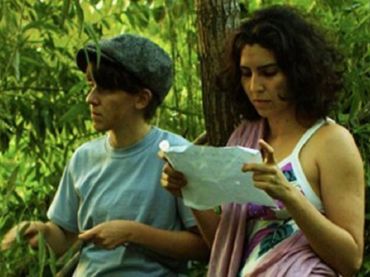
-
Thursday, 1 February 2024 – 7pm / Second session: Saturday, 17 February 2024 – 7pm Sabatini Building, Auditorium
Session 4
TicketsNaomi Kawase. Koma
Japan and South Korea, 2009, colour, original version in Japanese with Spanish subtitles, DA, 34’Jang Woo-jin. Gyeo-wul-ba-me (Winter’s Night)
South Korea, 2018, colour, original version in Korean with Spanish subtitles, DA, 98’The two films that make up this session deal with the main characters’ negotiation with the past and present, times which are constantly interweaving, and for whom tradition is a powerful and severe force. The filmography of Japanese director Naomi Kawase, straddling “real cinema” and “auteur cinema”, is shaped by an exploration of intimate and emotional life, and by issues such as absence, the need to be gazed at and the constant approach to and rejection of home territory. Her work Koma is immersed in forests and the Nara Basin in Japan via the figure of a visitor who arrives at a family house at the foot of the Miwa sacred mountain to return a Buddhist scroll given to his grandfather years before. This posthumous duty leads him to meet the woman of the house, with whom he holds a profound exchange. In Gyeo-wul-ba-me, by South Korean film-maker Jang Woo-jin, a middle-aged couple embark upon, thirty years after their first encounter, a night-time journey through the temple of Cheongpyeong, in the city of Chuncheon. In their meanderings, encounters occur with past characters which evoke regret, doubt and the erosion of the affection that underlies the day-to-day of the married couple. In short, a drama about the future of relationships which also approximates the style South Koran film-maker Hong Sang-soo.
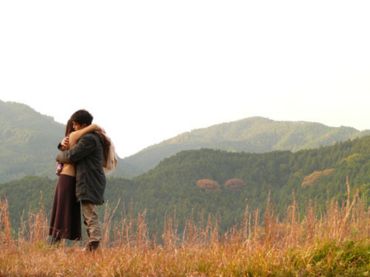
-
Friday, 2 February 2024 – 7pm / Second session: Thursday, 22 February 2024 – 7pm Sabatini Building, Auditorium
Session 5
TicketsMahamat-Saleh Haroun. Expectations
Chad and South Korea, 2008, colour, original version in Arabic and French with Spanish subtitles, DA, 29’Pedro Costa. A caça ao coelho com pau (The Rabbit Hunters)
Portugal and South Korea, 2007, colour, original version in Portuguese with Spanish subtitles, DA, 23’Claire Denis. Aller au diable (To the Devil)
France and South Korea, 2011, colour, original version in French with Spanish subtitles, DA, 45’Lives in transit, forced migration flows, damages inflicted by globalising processes under the neoliberal regime, and experiences of African diaspora, particularly post-colonial masculinities, are the strands entwining these three works, which travel from Africa to the Americas and Europe. In Expectations, by Chadian director Mahamat-Saleh Haroun, a man is pressured to embark on a dangerous journey through the desert and find passage to Europe, where he must see how he can pay off the debts his father incurred to fund a previous, unsuccessful attempt at migration. The film explores debt as a violent imposition stemming from agitated dynamics between fathers and sons in post-colonies, within a context of conflict and precarity. In A caça ao coelho com pau, meanwhile, Pedro Costa returns to the characters and settings of some of his best-known films. Ventura, an elderly migrant from Cabo Verde, remembers his family and past jobs in the company of other men who live in the Fontaínhas slum in Lisbon. The Portuguese film-maker thus reflects on the problems of gentrification and marginalisation in the urban environment, as well as the growing inequality in the country over recent decades. Finally, in Aller au diable French director Claire Denis travels to the border between Guyana and Suriname to meet the owner of mining operations there. This controversial figure acts as leader of the Aluku tribe, the descendants of runaway slaves who managed to escape from the Dutch exploiters and live for four hundred years secluded in forests.
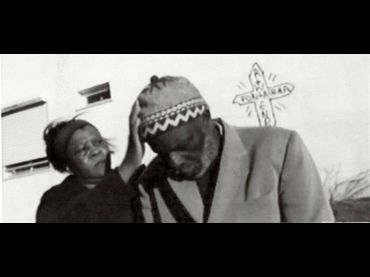
-
Saturday, 3 February 2024 – 7pm / Second session: Friday, 23 February 2024 – 7pm Sabatini Building, Auditorium
Session 6
TicketsLois Patiño. Samsara
Spain and South Korea, 2023, colour, original version in Lao and Swahili with Spanish subtitles, DA, 113’– With a presentation by Lois Patiño in the first session
Samsara travels between fiction and documentary, between Laos and Zanzibar, between the material and spiritual universe, diluting its borders. Drawing from the Bardo Thodol, known in the West as “The Tibetan Book of the Dead”, Galician film-maker Lois Patiño focuses on saṃsāra: the cycle of birth, life, death and reincarnation. With its minimal narrative, the film is structured into two parts, starting in a community of Buddhist monks in Laos and continuing in a small village on the coast of Zanzibar, following the passing of a being to incarnate the next one. In-between, the viewer is invited to close their eyes and let themselves be led by light and sound stimuli to form their own images. The filmography of Patiño, a film-maker from the so-called novo cinema galego (New Galician Cinema), underscores the dissolving of subjects in the landscape and, following this working strand in the film, completely blurs that which separates humans from animals and objects, referring to the visual, tactile and sensual qualities of the world understood as a canvas.
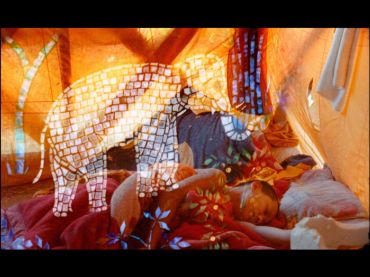
-
Thursday, 8 February 2024 – 7pm / Second session: Saturday, 24 February 2024 – 7pm Sabatini Building, Auditorium
Session 7
TicketsCamila José Donoso. Nona. Si me mojan, yo los quemo (Nona. If They Get Me Wet, They Will Burn)
Chile, Brazil, France and South Korea, 2018, colour, original version in Spanish, DA, 86’Chilean film-maker Camila José Donoso films and re-imagines her anarchist grandmother, Josefina Ramírez, or ‘Nona’, via different registers, from the photochemical format to digital, revealing a multifaceted image full of nooks, nuances and contrasts. The film explores the story that forced the protagonist into exile to the coastal town of Pichilemu, on the Pacific, where strange forest fires begin to break out. The fire that spreads through the community is also the fire Nona harnessed as a guerrilla during the years of military dictatorship, and the inner fire symbolising the act of defiance, transgression, disobedience and objection. In this feature-length film, moving between the intimate and the political, the director looks to eschew conventions when it comes to representing family memory and first-person accounts. “I think we see ‘old age’ as we see Nona […] governing her own life and most importantly enjoying it, as an act of protest”.
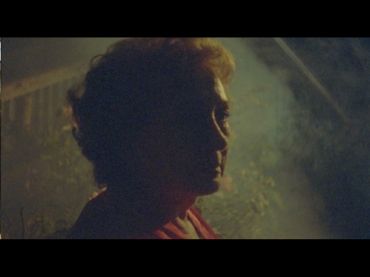
-
Friday, 9 February 2024 – 7pm / Second session: Thursday, 29 February 2024 – 7pm Sabatini Building, Auditorium
Session 8
TicketsNobuhiro Suwa. A Letter from Hiroshima
Japan and South Korea, 2002, colour, original version in English, Japanese and Korean with Spanish subtitles, DA, 37’Raya Martin. The Great Cinema Party
Philippines and South Korea, 2011, b/w, original version in English with Spanish subtitles, DA, 70’In A Letter from Hiroshima, Japanese director Nobuhiro Suwa sends a letter to Korean actress Ho-Jung Kim to invite her to Hiroshima to work on a film. However, when the actress arrives in Japan she is told that the director cannot attend the meeting and that, instead, he wants her to explore the city on her own. Using archive images, the film reflects on the legacy of the atomic bomb in the city, as well as the traces of violence inflicted on Korea during Japanese colonial rule. The Great Cinema Party, for its part, by Philippine film-maker Raya Martin, starts with a broad prologue made up of recovered images from the naval battles in the War of the Pacific and the bombings of Manila during the Second World War. On Corregidor Island, an old fortress of the United States army during the war, a group of foreigners gather in a mansion housing film relics and artefacts from another time. As night falls, they hold a big party, also bringing together recognisable figures from Philippine cinema, and when the film theatre is enveloped in darkness in the final minutes, the music flows beyond all conversation and the collective experience takes over any other attempt to give form.
These two films, despite foregrounding problems related to our relationship with the memory of tragedy and trauma, provide a glimmer of hope on the possibilities of cinema as a space of thought, encounter and memory, where the past is not something that can be erased and is in fact the opposite, constantly bursting forth into the arc of the present through images.
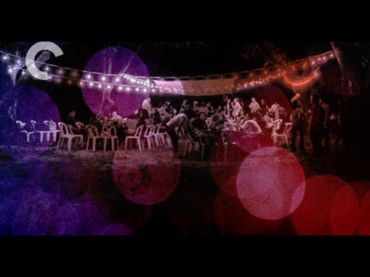
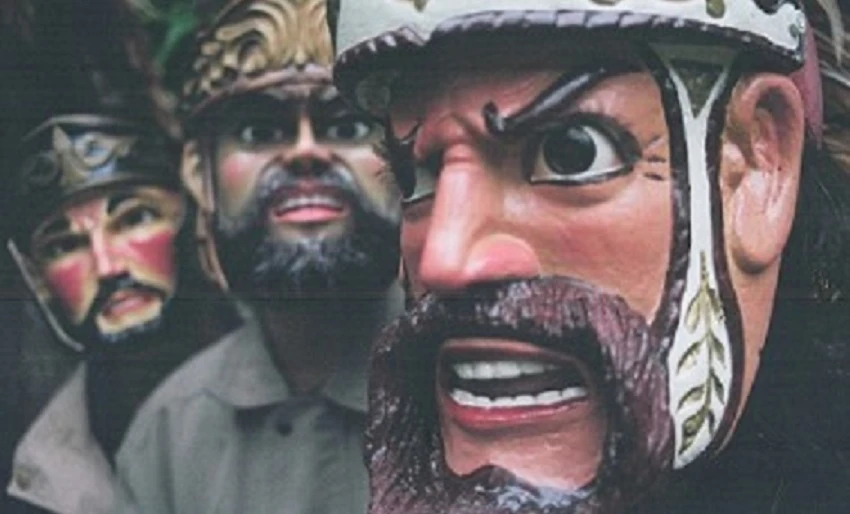
Held on 25, 26, 27 Jan, 01, 02, 03, 08, 09, 10, 15, 16, 17, 22, 23, 24, 29 Feb 2024
“To every age its art; to every art its freedom”, reads the inscription on the façade of the Vienna Succession Pavilion. The same ideal runs through the Jeonju International Film Festival (South Korea), which, for over twenty years, has charted the film-making of our time by means of independently made productions. This series, therefore, compiles a selection of such films, many of which have never been shown in Spain, for the purposes of sketching a global map of today’s auteur cinema.
In 2000, the festival launched the Jeonju Digital Project, centred on film production and entailing digital-format, medium-length films being commissioned annually to three film-makers by an independent jury. After a few years, and with a list of salient directors such as John Akomfrah, Pedro Costa, Claire Denis, Naomi Kawase and Apichatpong Weerasethakul, it became apparent that the project had become a gauge for the contemporary film image. An intriguing indicator owing both to coordinates — productions made not from European film institutions or festivals, but from a South Korean city — and to the absence of hierarches, both in formal expression — fiction, experimental, documentary — and in the geographical origins of the artists. Thus, the participation of European, Asian, African and American film-makers confronted the West’s creative and discursive hegemony, reminding us that it is just one more province in the world.
In 2014, the Jeonju Digital Project decided to produce feature-length films, in lieu of medium-length works, and, given that digital was now the dominant format, it ceased to be a requirement and the initiative went on to be called the Jeonju Cinema Project. After a decade in existence, the Jeonju Cinema Project, much like its predecessor, confirmed the changing role that film festivals have been able to perform this century: moving from mere exhibitors to active producers.
The films selected here provide a rich, complex and polyphonic gaze at the cinema of our time, reflecting the capacity of this art form to record the present and make history as it happens. Furthermore, this season sees the Museo Reina Sofía close the Sabatini Building Auditorium until the end of 2024, when it will re-open as a modernised film theatre.
Organised by
Museo Reina Sofía and Jeonju International Film Festival
Más actividades
![Tracey Rose, The Black Sun Black Star and Moon [La luna estrella negro y negro sol], 2014.](https://recursos.museoreinasofia.es/styles/small_landscape/public/Obra/AD07091_2.jpg.webp)
On Black Study: Towards a Black Poethics of Contamination
Monday 27, Tuesday 28 and Wednesday 29 of April, 2026 – 16:00 h
The seminar On Black Study: Towards a Black Poethics of Contamination proposes Black Study as a critical and methodological practice that has emerged in and against racial capitalism, colonial modernity and institutional capture. Framed through what the invited researcher and practitioner Ishy Pryce-Parchment terms a Black poethics of contamination, the seminar considers what it might mean to think Blackness (and therefore Black Study) as contagious, diffuse and spreadable matter. To do so, it enacts a constellation of diasporic methodologies and black aesthetic practices that harbor “contamination” -ideas that travel through texts, geographies, bodies and histories- as a method and as a condition.
If Blackness enters Western modernity from the position of the Middle Passage and its afterlives, it also names a condition from which alternative modes of being, knowing and relating are continually forged. From within this errant boundarylessness, Black creative-intellectual practice unfolds as what might be called a history of touches: transmissions, residues and socialities that unsettle the fantasy of pure or self-contained knowledge.
Situated within Black radical aesthetics, Black feminist theory and diasporic poetics, the seminar traces a genealogy of Black Study not as an object of analysis but as methodological propositions that continue to shape contemporary aesthetic and political life. Against mastery as the horizon of study, the group shifts attention from what we know to how we know. It foregrounds creative Black methodological practices—fahima ife’s anindex (via Fred Moten), Katherine McKittrick’s expansive use of the footnote, citation as relational and loving labour, the aesthetics of Black miscellanea, and Christina Sharpe’s practices of annotation—as procedures that disorganise dominant regimes of knowledge. In this sense, Black Study is approached not as a discrete academic field but as a feel for knowing and knowledge: a constellation of insurgent practices—reading, gathering, listening, annotating, refusing, world-making—that operate both within and beyond the university.
The study sessions propose to experiment with form in order to embrace how ‘black people have always used interdisciplinary methodologies to explain, explore, and story the world.’ Through engagements with thinkers and practitioners such as Katherine McKittrick, C.L.R. James, Sylvia Wynter, Christina Sharpe, Fred Moten, Tina Campt, Hilton Als, John Akomfrah, fahima ife and Dionne Brand, we ask: What might it mean to study together, incompletely and without recourse to individuation? How might aesthetic practice function as a poethical intervention in the ongoing work of what Sylvia Wynter calls the practice of doing humanness?

Intergenerationality
Thursday, 9 April 2026 – 5:30pm
This series is organised by equipoMotor, a group of teenagers, young people and older people who have participated in the Museo Reina Sofía’s previous community education projects, and is structured around four themed blocks that pivot on the monstrous.
The third session gazes at film as a place from which to dismantle the idea of one sole history and one sole time. From a decolonial and queer perspective, it explores films which break the straight line of past-present-future, which mix memories, slow progress and leave space for rhythms which customarily make no room for official accounts. Here the images open cracks through which bodies, voices and affects appear, disrupting archive and questioning who narrates, and from where and for whom. The proposal is at once simple and ambitious: use film to imagine other modes of remembering, belonging and projecting futures we have not yet been able to live.

Remedios Zafra
Thursday March 19, 2026 - 19:00 h
The José Luis Brea Chair, dedicated to reflecting on the image and the epistemology of visuality in contemporary culture, opens its program with an inaugural lecture by essayist and thinker Remedios Zafra.
“That the contemporary antifeminist upsurge is constructed as an anti-intellectual drive is no coincidence; the two feed into one another. To advance a reactionary discourse that defends inequality, it is necessary to challenge gender studies and gender-equality policies, but also to devalue the very foundations of knowledge in which these have been most intensely developed over recent decades—while also undermining their institutional support: universities, art and research centers, and academic culture.
Feminism has been deeply linked to the affirmation of the most committed humanist thought. Periods of enlightenment and moments of transition toward more just social forms—sustained by education—have been when feminist demands have emerged most strongly. Awareness and achievements in equality increase when education plays a leading social role; thus, devaluing intellectual work also contributes to harming feminism, and vice versa, insofar as the bond between knowledge and feminism is not only conceptual and historical, but also intimate and political.
Today, antifeminism is used globally as the symbolic adhesive of far-right movements, in parallel with the devaluation of forms of knowledge emerging from the university and from science—mistreated by hoaxes and disinformation on social networks and through the spectacularization of life mediated by screens. These are consequences bound up with the primacy of a scopic value that for some time has been denigrating thought and positioning what is most seen as what is most valuable within the normalized mediation of technology. This inertia coexists with techno-libertarian proclamations that reactivate a patriarchy that uses the resentment of many men as a seductive and cohesive force to preserve and inflame privileges in the new world as techno-scenario.
This lecture will address this epochal context, delving into the synchronicity of these upsurges through an additional parallel between forms of patriarchal domination and techno-labor domination. A parallel in which feminism and intellectual work are both being harmed, while also sending signals that in both lie emancipatory responses to today’s reactionary turns and the neutralization of critique. This consonance would also speak to how the perverse patriarchal basis that turns women into sustainers of their own subordination finds its equivalent in the encouraged self-exploitation of cultural workers; in the legitimation of affective capital and symbolic capital as sufficient forms of payment; in the blurring of boundaries between life and work and in domestic isolation; or in the pressure to please and comply as an extended patriarchal form—today linked to the feigned enthusiasm of precarious workers, but also to technological adulation. In response to possible resistance and intellectual action, patriarchy has associated feminists with a future foretold as unhappy for them, equating “thought and consciousness” with unhappiness—where these have in fact been (and continue to be) levers of autonomy and emancipation.”
— Remedios Zafra

ARCO2045. The Future, for Now
Saturday 7, March 2026 - 9:30pm
The future, its unstable and subjective nature, and its possible scenarios are the conceptual focus of ARCOmadrid 2026. A vision of the future linked to recent memory, a flash of insight into a double-edged sword. This year's edition, as in the previous two, will once again hold its closing party at the Reina Sofia Museum. This time, the star of the show is Carles Congost (Olot, Girona, 1970), one of the artists featured in the new presentation of the Collections recently inaugurated on the 4th floor of the Sabatini Building.
Carles Congost, with his ironic and timeless gaze, is responsible for setting the tone for this imperfect future, with a DJ session accompanied by some of his works in the Cloister on the first floor of the Sabatini Building of the Museo on the night of Saturday 7 March.

27th Contemporary Art Conservation Conference
Wednesday, 4, and Thursday, 5 March 2026
The 27th Contemporary Art Conservation Conference, organised by the Museo Reina Sofía’s Department of Conservation and Restoration, with the sponsorship of the Mapfre Foundation, is held on 4 and 5 March 2026. This international encounter sets out to share and debate experience and research, open new channels of study and reflect on conservation and the professional practice of restorers.
This edition will be held with in-person and online attendance formats, occurring simultaneously, via twenty-minute interventions followed by a five-minute Q&A.